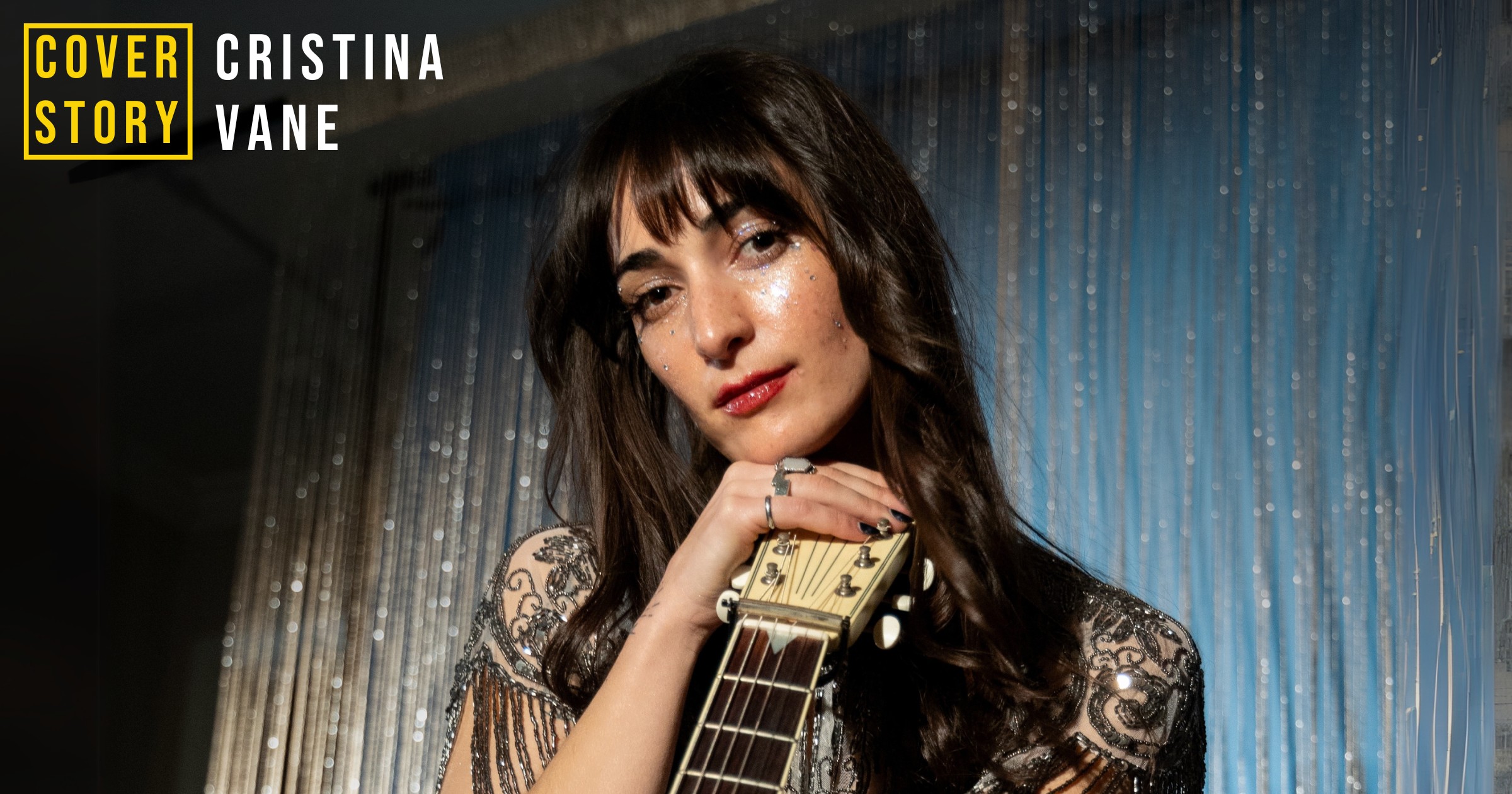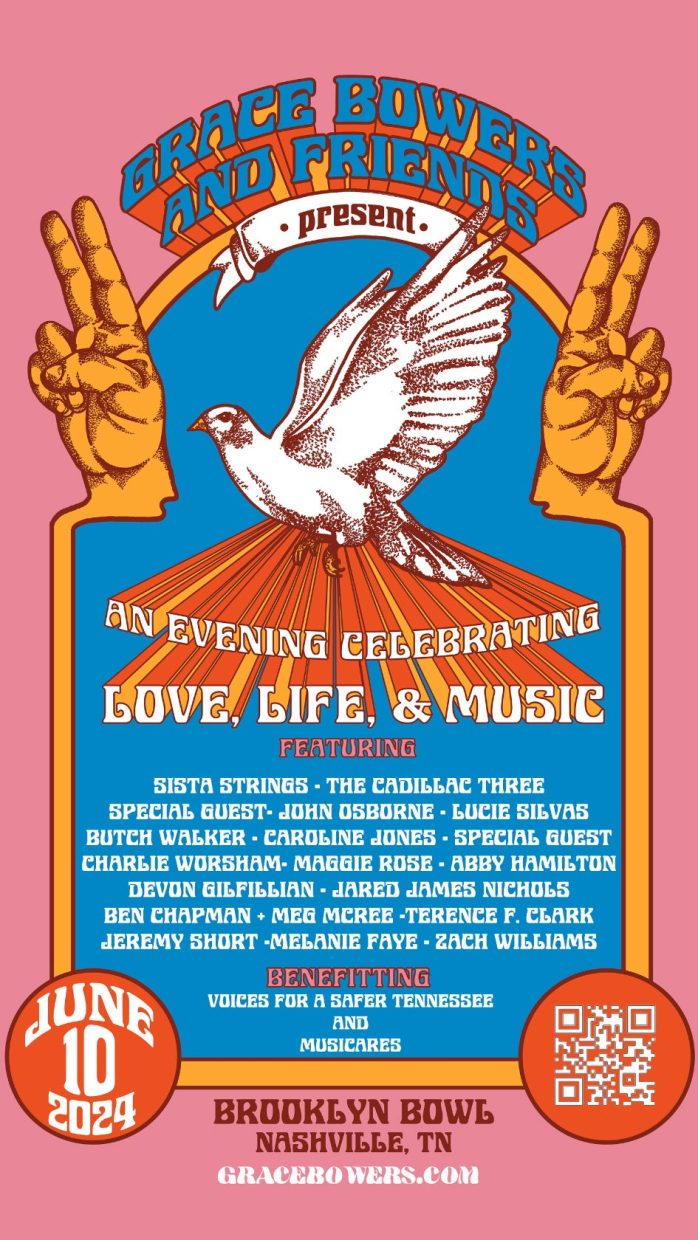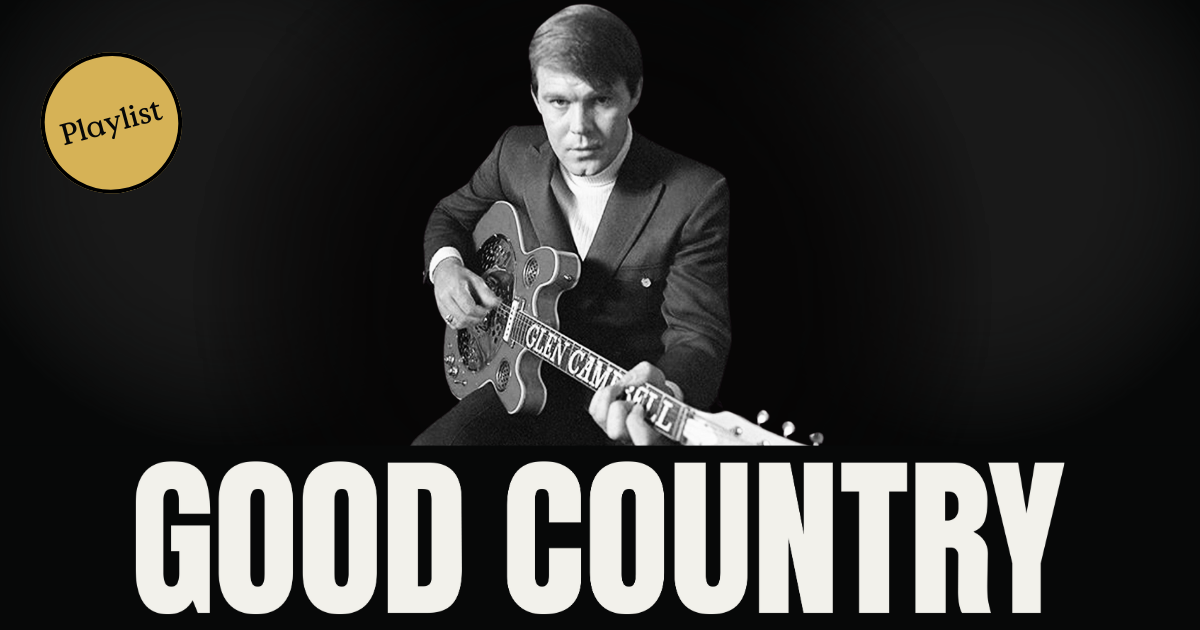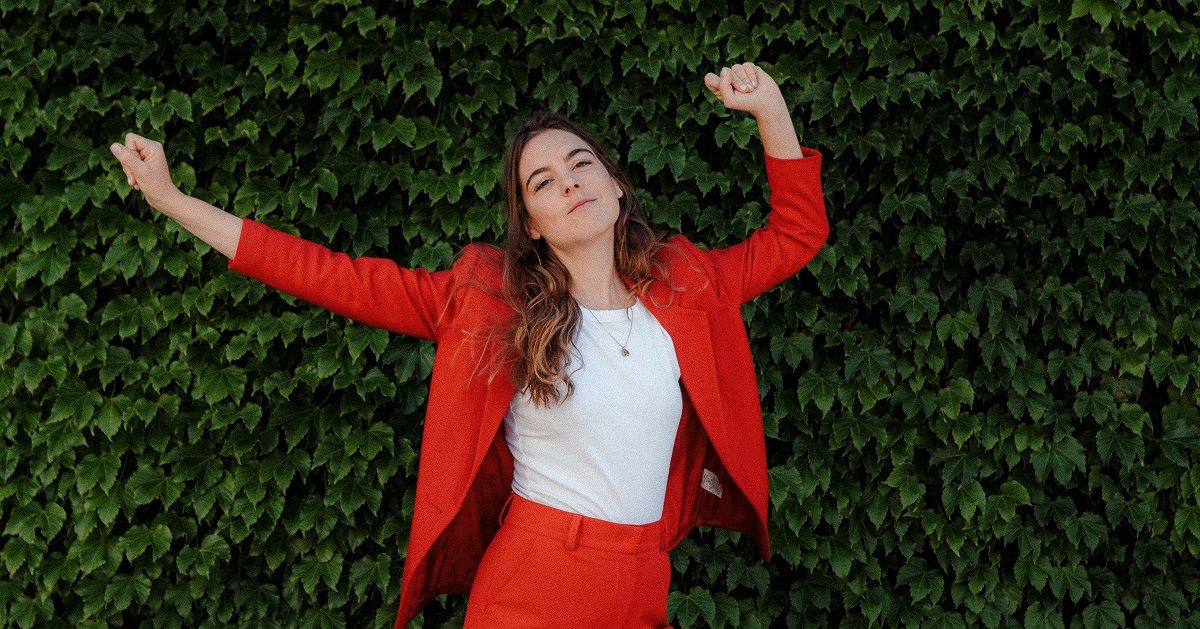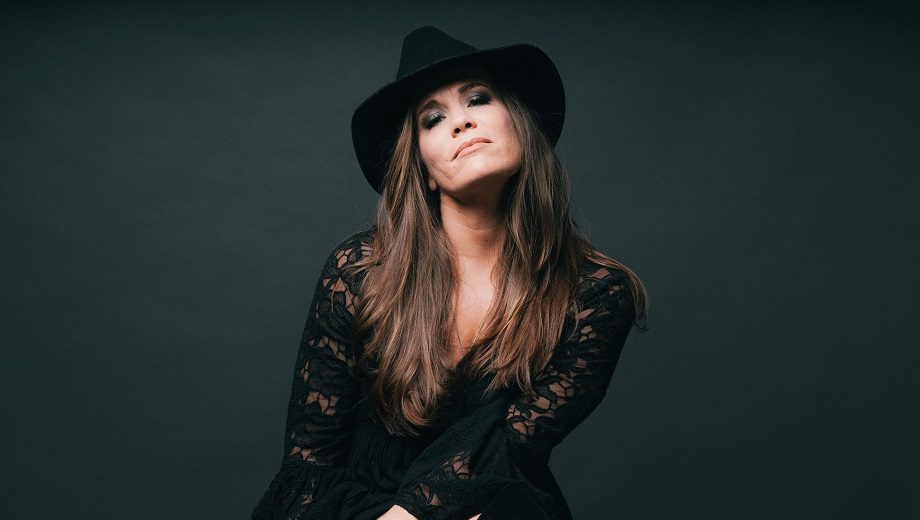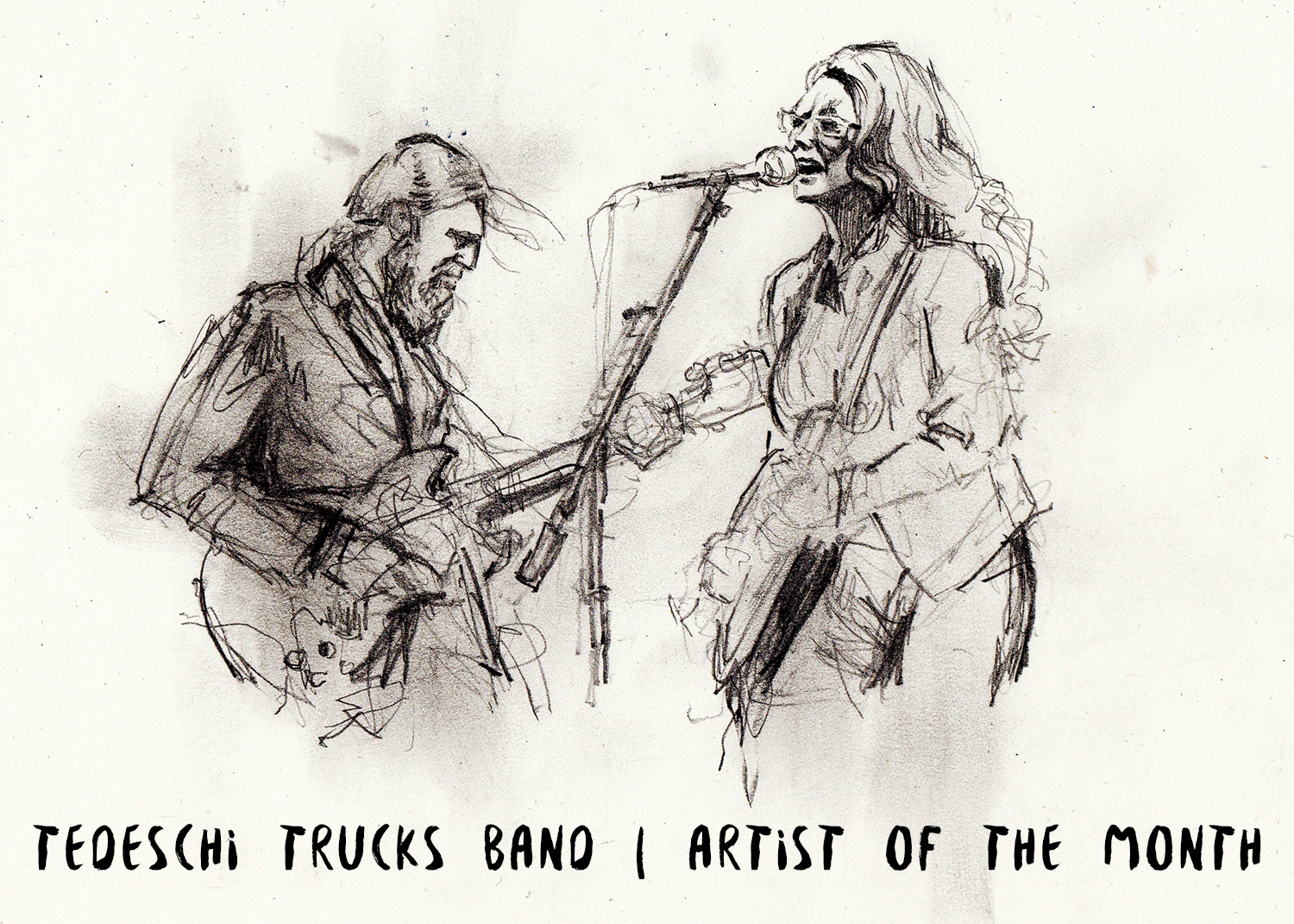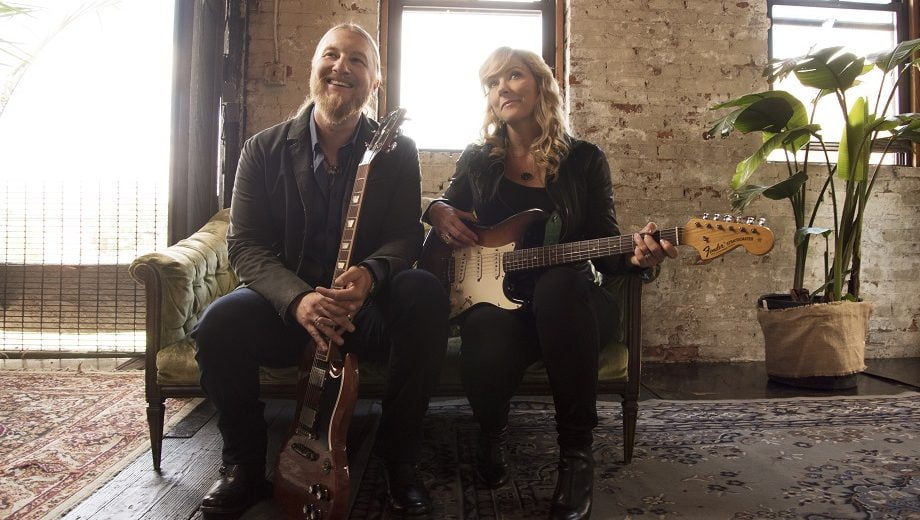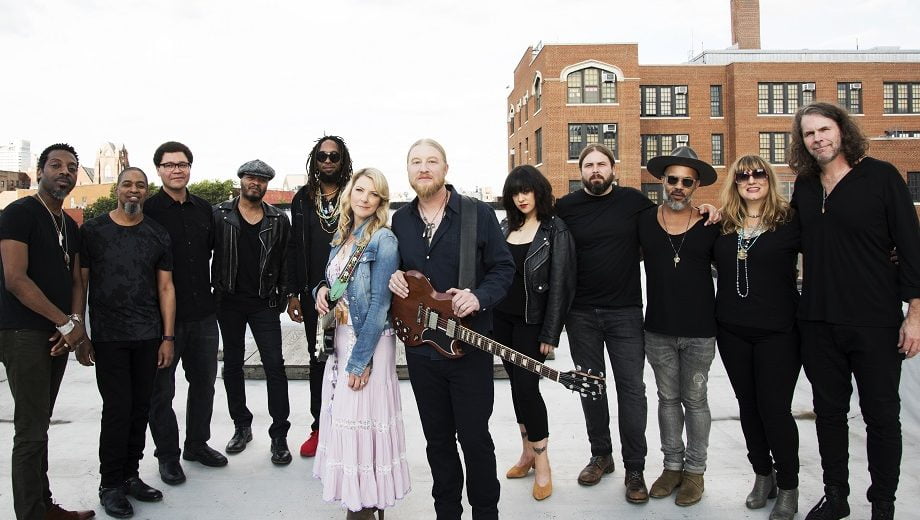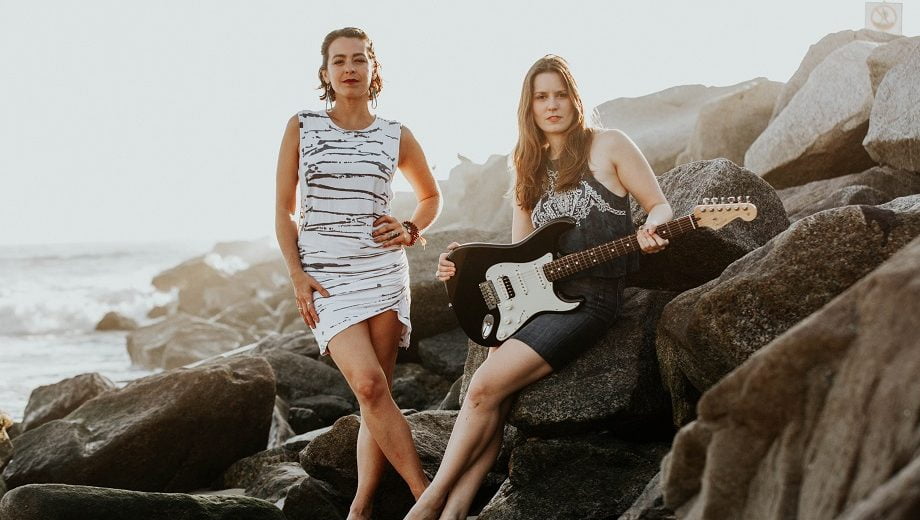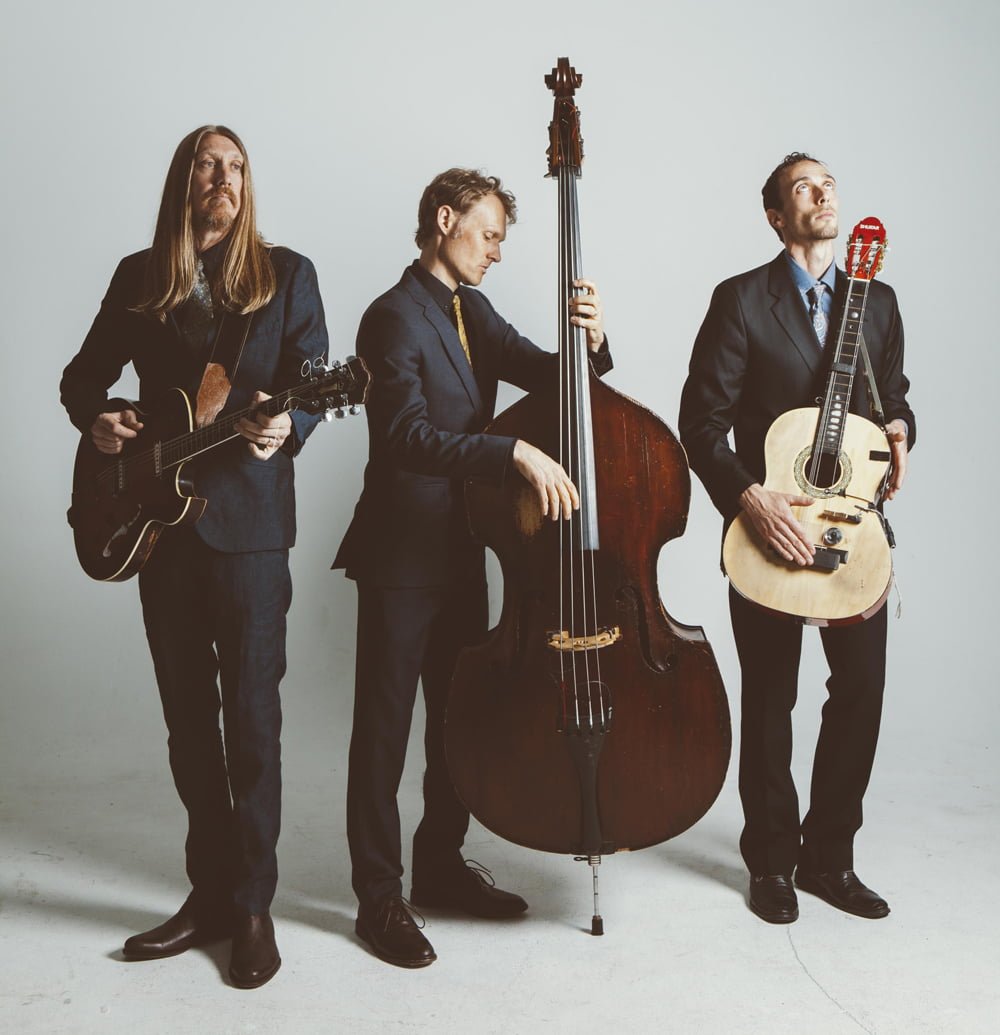A blues, old-time, and Americana alchemist, singer-songwriter-instrumentalist Cristina Vane has just released a striking new album, Hear My Call, a collection that defies categorization and tidy genre labels.
Something of a roots music influencer – though she perhaps would never self ascribe that title – Vane has built a remarkable following around her agnostic approach to borderless, post-genre roots music that effortlessly calls back to eras before all of these styles were stratified and separated.
Vane’s Americana agnosticism stems from a variety of inspirations and inputs, but is largely derived from circumstances, taste, and whim. On the seventh track of Hear My Call, “My Mountain,” she sings along with loping frailed banjo:
I was born across the sea
At the feet of the mountain
I left young and it left me
Lost a piece of my grounding
I watch you and how you speak
Belonging is astounding
I watch you, but what of me?
The history that I’m bound to…
She’s referencing her upbringing in Europe, born at the foot of the Alps and raised in Paris before moving to the U.S. in her youth. What does it mean to be a purveyor of “mountain music” when the mountains you claim are not Appalachia or the Ozarks or even Celtic highlands? How can you be an expert and interpreter of these art forms, while ultimately sensing – consciously and subconsciously – that your identity is not or cannot be interwoven with them? Perhaps it brings a certain unbridled freedom and ease? Or perhaps it means your entire relationship to the musics you love will be informed by this kind of daunting existential question: Can you belong?
For Vane, it’s clearly a smattering of many factors that has led her to this delicious and carefree combination of styles, sonics, and songs. She is truly an expert on blues, bluegrass, old-time, and beyond, spurred to excellence on one hand by her feeling of imposing in these traditions and on the other by a devout love and gratitude for the people who also inhabit these spaces and who passed the art along to her.
Cristina Vane may have not felt truly at home in the roots music scenes that claim her until recently or maybe she needed to still grow, easing into her current confident, unapologetic sense of self. At any rate, she’s ready for the world to hear her call – and to understand that she alone decides who she is, how she sounds, and where she belongs. Whether “her mountain” is found in the Alps, in the southeastern United States, in Los Angeles, Music City, or anywhere else. Vane knows that she, too, is a part of these timeless traditions and that, above all else, could be the primary reason she moves between these folkways so gracefully and entrancingly.
Your sound feels like it hearkens back to a time before roots music was split up into all of these different genres, when blues and folk and old-time and bluegrass and country were all technically considered the same thing. I feel like you combine sounds in a really similar way. How do you approach your sound? To me it feels like you’re pretty agnostic, you are very fluid in the way you approach genre. Especially with this album, as it feels so fully fleshed out, built up, and lush.
Cristina Vane: It is a really fine line to walk and I’ve had this struggle since forever where I just don’t want to choose. I don’t feel like I should have to really, either, and I do think that’s what I was hoping would come across in all my albums. Specifically this one in many areas of my life, includes this question of, “Who am I?” “Where am I from?” “Who am I in my community?”
“Who am I” applies to genre as well. Every time I feel this voice of self-doubt that’s like, “It’s just too confusing. If you wanna be appealing to more people and get better opportunities and festivals, they have to know what you are.”
Every time that comes up it’s a difficult feeling, but I ultimately always just say “fuck you!” [Laughs] It’s really affirming that you feel positively about that because I also agree, in the sense that I come from the ‘90s and 2000s, listening to different music and genre was important, but not in the way that I feel like it can get tiresome in Americana music. Where there’s this legacy and tradition that you have to uphold if you’re gonna fit within the parameters of a genre. Whereas, in indie music you can do whatever you want and if it sounds kind of like the other bands in the genre, then I guess you’re indie!
I guess I approached the older traditions with some hesitancy, because I knew that traditional-leaning people are [going to question me]. “You’re not really a blues woman” and “You’re not really a bluegrass artist” and “You’re not really an old-time player.”
Honestly, I think one of the people that, in a lot of ways inspired me on my first album to just stay the course, was Sarah Jarosz. It was more than the fact that she played different instruments and didn’t feel bound to be just a mandolin player. She’s just so talented, obviously, and I think it was very full circle when her last album came out and it was a completely different world than the string band sound stuff. I was like, “See? We all have it in us to want to explore different things.”
To answer your question a little more directly, I don’t worry about genre. If I wrote this song and I am proud of the song, I want to flesh it out in a way that just intuitively feels good to me. That being said, there are some songs where I lean towards more bluegrass, but there’s also a song like “Storm Brewing,” where it’s a clawhammer song. I wrote it on the banjo and then when we dressed it up, it just felt really good to put some electric guitar in there. I’ve added drums to everything because that’s how I wanna play my live show.
I love that you mention Sarah Jarosz, because that’s definitely an artist that this album reminds me of, but also Larkin Poe, Bonnie Raitt and Susan Tedeschi specifically, because you have these big bluesy modern tracks, but you’re a picker as well. I think that changes the music, when the bones of it or the origins of it are coming from someone who’s an instrumentalist-performer-songwriter-vocalist.
I also think that’s part of why the music, even though it comes from a variety of genre backgrounds, feels so engaging and charming, because you can play around with those sounds freely. Even if you were just playing the songs solo, just you, yourself, and your instrument – whatever instrument that may be – they would still work, but they also work fully realized.
Can you talk a little bit about how being a picker informs you and inspires you as a songwriter and as a frontwoman?
You kind of already hit on it. From the outset every song starts with me and my instrument – and they usually start either like “Storm Brewing” in a tent in Utah or like “Getting High in Hotel Rooms” getting high in hotel rooms in Las Vegas. I sit down with an instrument and the music always comes first.
“Everything Is Fine” actually started as a more fingerstyle thing on my resonator [guitar]. I wrote the words and then I was feeling the chorus. The vibe is more rock, and I wanted a strumming electric guitar. So it can be malleable, but pretty much [most of the time] it’s like, “I wrote this riff on this instrument and now I’m gonna write some words to it.” Then, in the case of this album, I bring it to my touring band, who I trust immensely and we can collaboratively work, play around with it, and they give their input as well.
Let’s talk about the title track. “Hear My Call” is like Ola Belle Reed meets Gillian Welch meets modern, head-bobbing bluegrass mash. I love that. I thought it was interesting to pick this one as the title track, given that it’s one of a handful of string band songs on the record among many much “harder” sounding tracks. I wanted to know more about the inspiration behind it, choosing it as the title track, and having it be the keystone of the project. How did you write it and how did it all come together?
You know, I’m actually deeply dismayed to say that I don’t even remember when exactly I wrote this riff! I think I was on a very long, grueling West Coast tour, but you know the West Coast is also always filled with magic. I’m very partial to the nature and landscape out West. I would’ve definitely written the riff first and then I started just hearing this chorus over and over. I was playing it at soundchecks.
I guess I didn’t even think about choosing a song that best represents the album. I was struggling to name the album, just because it’s hard to do that. Do I choose another title or do I do a title track? But I actually chose it because this whole album [is about] the way I was mentally, the way I still am feeling about my place in music, my place in the world, and the general sort of comfort level I have with being exactly who I am.
I’m in a time of changing my energy from being an observer and a student of a lot of different cultures and musics, from looking at other people and taking all of that with deep gratitude, realizing that I have a story as well. The unique blend of things that make up my cultural history, and geographical history – all of those things I should be proud of and not uncomfortable with. Until the last couple of years, I was just uncomfortable with how complicated everything is in my my personal history and my musical influences and not knowing how to marry being a girl from Paris that went to Princeton with being someone who loves down-home music. I just spent [a lot of] time almost apologizing for things that I really can’t change [about myself].
“Hear My Call” is reflective of the shift that happened. Maybe it’s just growing into yourself and realizing I’m actually proud of where I’m from and I’m happy to have had the experiences I have. I have learned a lot from other people, but other people can maybe also learn from me. It’s not all just “take take take.” I can give something back. It’s an assertion of reclaiming space. That’s really what this song is about.
It’s interesting to hear you say that you’re giving yourself permission to be exactly who you are and love the music you love and make the music you make, because I think part of the “trad” music world is that we’re all policing ourselves all the time.
I actually didn’t realize it, but I think a lot of what influenced how I went into the studio [for this album] was that, around that time and a little before, I was delving deep back into the music I listened to when I was, let’s say, 11 to 18. After so many years of being a true student of the blues and then old-time – like, “I have to learn every tune and I have to read all the books!” Well, I wanted to. I went back into this music that felt so familiar and not being stupid and young anymore thinking, “I can’t listen to Blink-182, ‘cause it’s not cool.” I missed The Strokes and Bon Iver and Elliott Smith and all these things that, while I’ve always loved them, I kind of pushed to the wayside as all this new music came in, which is natural.
I loved this feeling around the time of doing this album of just reconnecting with my teenage self and remembering that that [music] has [also] informed the way I write. I want it to be just as present as someone that I discovered much later, like Gillian Welch. I’m hoping that mix comes across, to some extent.
I also wanted to ask about your “online community.” You have a huge social media following and you have so many amazing collaborators that you make content with. Personally, I think part of why you’re able to approach genre without being contained by categories is because you have built this direct-to-consumer business model. You’re directly interfacing with so many of your listeners, so none of them are gonna be surprised to see you code-switch on a project, genre-wise or sonically.
It jumped out at me that the way that you operate online – creating on your own terms with the door open and the window shades up so that everybody can be part of that process and also take ownership of it – must somewhat allow you to do what you want. You aren’t beholden to anybody but yourself, especially given that you’ve created this ecosystem and this community for yourself and your fans already know that’s what to expect from you.
Wow, I just love doing interviews, ‘cause I feel like when they’re insightful people like you they’re telling me things about myself! Because that’s so, so insightful and I have never thought about it that way!
So much has been dictated by circumstance or necessity – and partially just me being batshit crazy and honestly not scared of anything. [Laughs] Like, I would go on the beach in Venice, [California] when I lived there and busk. Instead of playing songs that would make me a lot of money, I played my own songs over and over and over, because I was like, “I’m playing my guitar. I need to get good at it. I think it’s cool and they’ll think it’s cool, too.”
When I first went on the road, I was like, “Well, I’m gonna bring my electric guitar, because my acoustic is gonna explode when I’m in Zion and Moab and all these crazy places.” I was on the road for six months in a tent, mostly. That was a big factor in choosing why a lot of my songs are performed on electric. Then I brought my banjo, ‘cause I liked it and I was like, “I don’t really care if it’s confusing, but I’m gonna like play my blues stuff.”
This is actually going to offend people if you print this, but I would play through my [Fender] Blues Junior and then I would just plug my banjo into it, because, “It’s an amplifier and it fucking works, so…” [Laughs] It didn’t sound that bad actually, to be honest with you, but yeah, I would be playing some random brewery somewhere that I’ve never been and I would go from playing Son House to “Angeline the Baker,” because that’s what I was learning at the time.
I guess in some ways, of course I’m like everyone else and I worry deeply about what people think of me and how I am perceived, but in other ways, I just don’t care. That can be really freeing. I think that’s carried over a little bit. I had experimented with paring myself down – “OK, I need to just be a blues player” and then I would show up to the gig and there would always be one or two people that were disappointed I didn’t bring the banjo. And vice versa when I just did the string band stuff, it felt like I was missing a huge part.
I mean there was no way I was gonna not play my guitar. That’s like my main instrument, but there was a time in Nashville where I was just playing with a string band and I didn’t ever play my resonator. I just played acoustic and the banjo. It didn’t feel complete. I don’t have it figured out. I don’t know that there is a “figuring out” that’s going to happen. I’m just gonna play what I like.
You contain multitudes!
Yes! Thank you, I try. [Laughs]
Photo Credit: Stacie Huckeba
